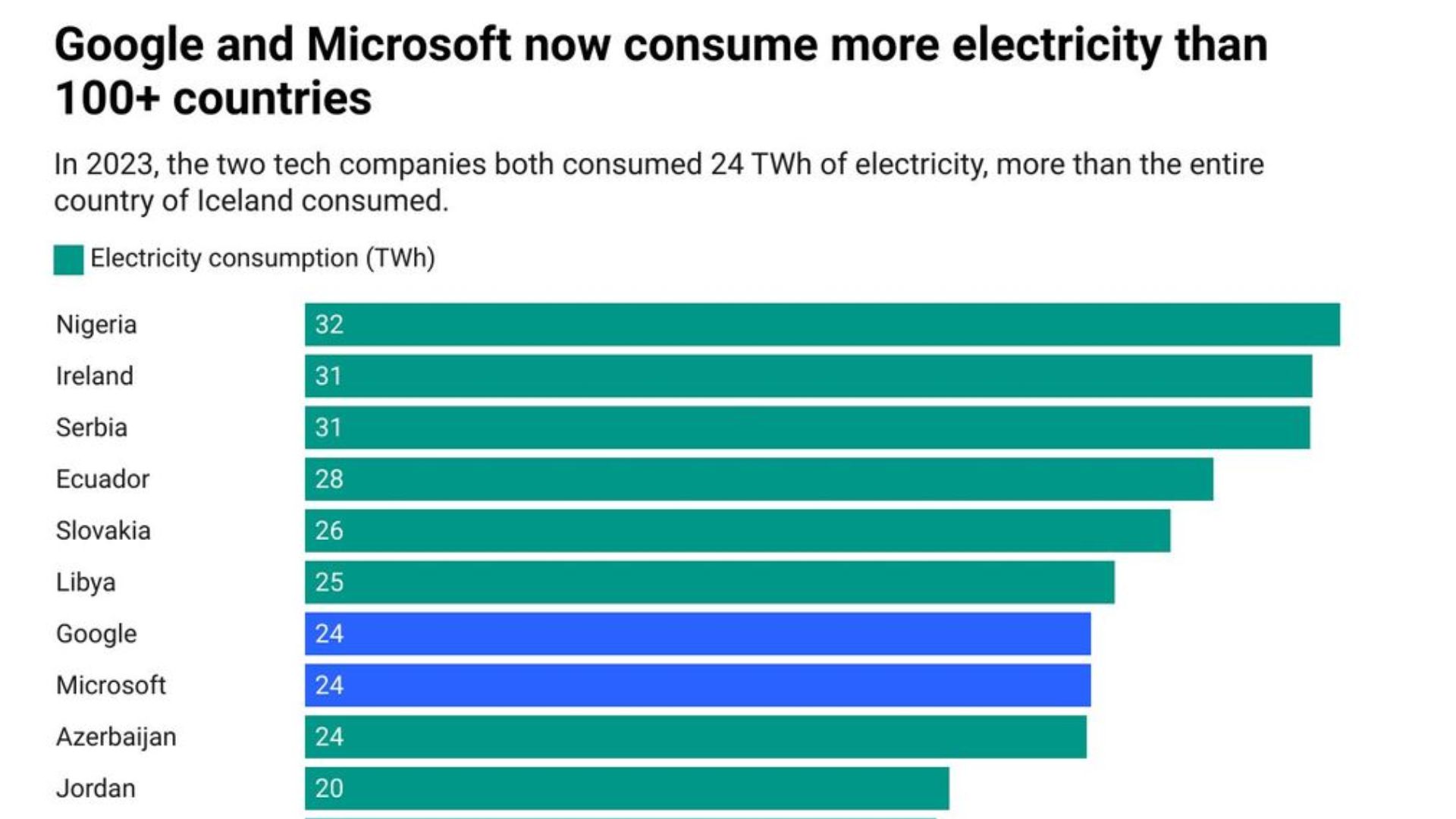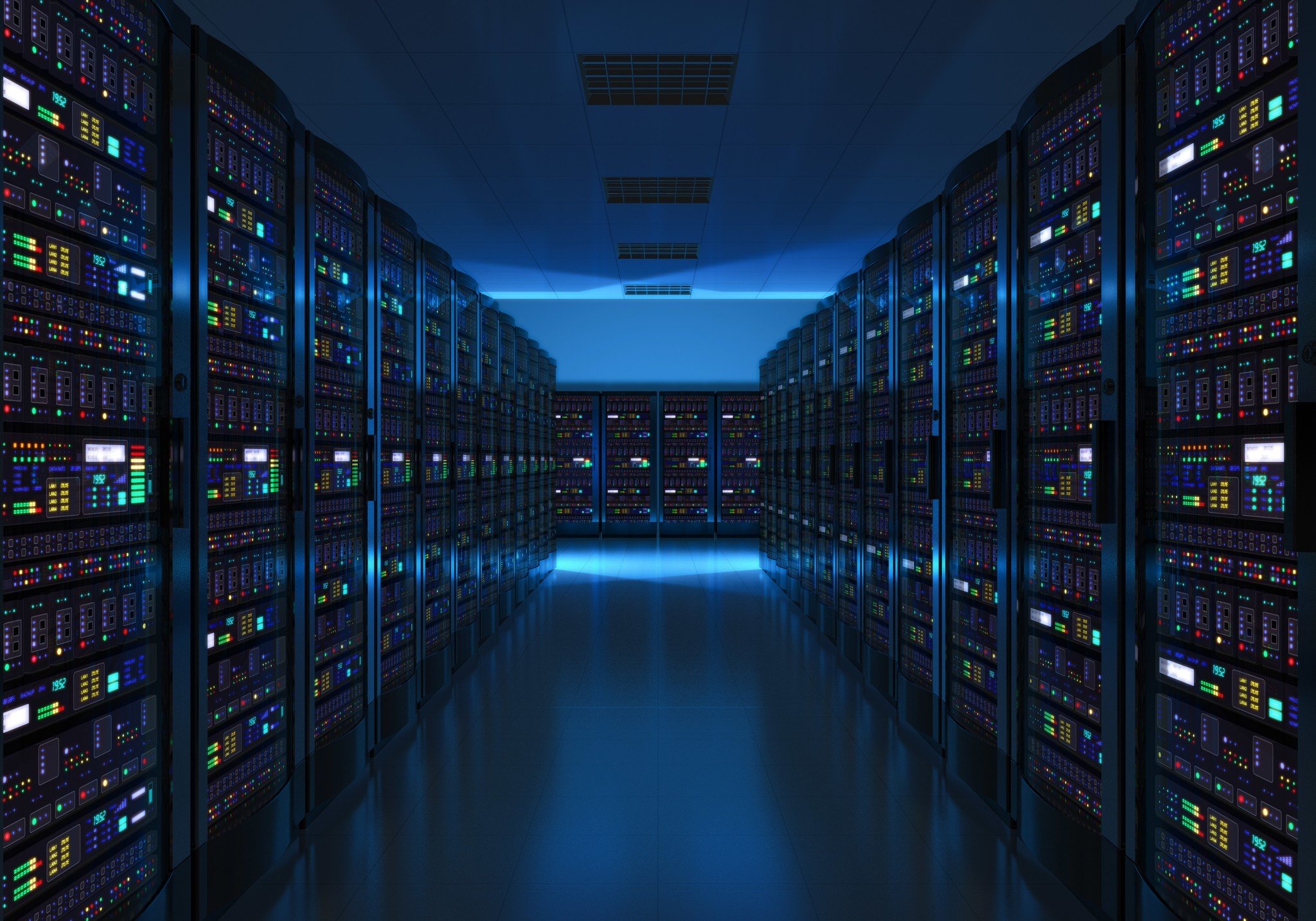
What you need to know
- Google and Microsoft each consumed 24 TWh of electricity in 2023.
- They are among the top tech firms championing renewable energy as a plausible alternative power source for their sophisticated advances.
- Both companies have data centers that consume power to keep their cloud services running, including their AI efforts.
Generative AI is taking the world by storm, and its impact is evident across all sectors, including medicine, education, music, computing, and more. Debatably, we're well past the AI-powered chatbots and image generation tools phase, and this is where things are about to get interesting.
As the AI landscape becomes more sophisticated and advanced, so do its demands. As you may know, AI consumes a ridiculous amount of electricity to power its advances. It equally requires a large amount of water for cooling — 1 water bottle per query.
In 2023, Microsoft and Google consumed 48 TWh of electricity (24 TWh each). According to a detailed analysis by Michael Thomas, this surpasses the power consumption of over 100 nations, including Ghana, Tunisia, and more (via Tom's Hardware).
Last year, Google and Microsoft data centers consumed more electricity than many countries did. Wild. pic.twitter.com/YZIahr2wYnJuly 11, 2024
Some of the downsides to advancements in the AI landscape include the degradation of the environment, however, Google and Microsoft are big on renewable energy and have been championing the campaign while seeking alternative power sources. Microsoft and Google's power needs can comfortably meet Azerbaijan's electricity consumption. For context, Azerbaijan has a population of 10.14 million and an estimated GDP of $78.7 billion.
It's worth noting that AI is turning into a lucrative venture. Microsoft recently became the world's most valuable company, with over $3 trillion in market valuation. Market analysts attribute its success to an early adoption and investment in AI. Microsoft CEO Satya Nadella echoed similar sentiments during the company's earnings call. Nadella attributed an increase in revenue, operating income, and net income to the "new era of AI transformation."
Microsoft and Google have data centers to keep their cloud services running, including cloud storage and computing. The data centers consume a lot of power and water for cooling. Power consumption is likely to have gotten higher with both companies hopping onto the AI bandwagon face-first.
More power concerns abound

Elon Musk claimed we're on the verge of the biggest technology breakthrough with AI, but there won't be enough power by 2025. The billionaire's sentiments are consistent in the report above, especially with the exponential growth of AI.
Sam Altman has been exploring a potential alternative power source for OpenAI's AI efforts, with nuclear fusion at the top of his list. Microsoft is also seeking an alternative power source for its AI efforts and has partnered with Helion. Helion is expected to start generating nuclear energy through nuclear fusion by 2028 and is currently training LLMs to help speed up the regulatory process.
While nuclear fusion seems like the perfect solution for AI's power needs due to its non-existent impact on the environment, scientists and researchers say it's "too late to deal with the climate crisis" and view fission and renewable energy as better options.







